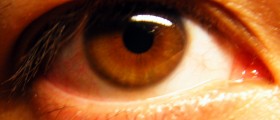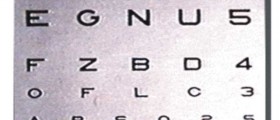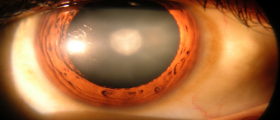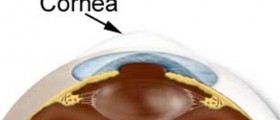
Double Vision- Overview
Double vision, medically known as diplopia, is a symptom of many eye disorders and may also affect people suffering from other illness that are not primary related to the eyes. The symptom may be transitory and occur occasionally and it may be permanent significantly interfering in one's life and performing certain activities. If it occurs, double vision must be taken seriously and a person is supposed to visit his/her health care provider in order to identify the exact cause.
This symptom is commonly accompanied by several more symptoms and signs such as misalignment of one or both eyes, pain associated with movements of the eyes, pain in the nearby tissues (the temples, eyebrows etc), and headache, weakness in the eyes, droopy eyelids and nausea.
Causes of Double Vision
There are many illnesses associated with double vision. The very causes of double vision can be classified into several categories. The very problem may originate from an injury, damage or many illnesses of several structures such as the cornea, lens and muscles of the eyes, optic nerve and the brain.
Corneal problems are often related to double vision. In some cases covering of one of the eyes may cause withdrawal of the symptom. Damage to cornea results in distortion of the incoming light and this is a reason for double vision. In majority of cases infections of the cornea and certain complication of LASIK surgery leads to the onset of double vision. Furthermore, double vision may result from cataract. This particularly occurs if both eyes are affected. Cataract-induced double vision is easily corrected with a minor surgery. Double vision may also develop due to weakness of the eye muscles. This is common for people suffering from myasthenia gravis and Graves' disease. The optic nerve problems are also associated with double vision. The nerve can be damaged due to multiple sclerosis, uncontrolled diabetes and Gullian-Barre syndrome. And finally, certain structural changes in the brain also result in double vision. These changes commonly affect specific parts of the brain in charge with interpretation of visual stimuli and occur due to stroke, aneurysms, increased intracranial pressure caused by brain tumors, trauma, bleeding or infection. Even migraines can be the cause of double vision.
Majority of patients suffer from binocular double vision. Monocular double vision is not so common and is usually caused by abnormalities of the cornea, iris, lens, vitreous humor and aqueous humor. Monocular double vision occurs in people suffering from refractive errors such as astigmatism, in case of rare type of cataract and it may be also a characteristic of dry eye, the presence of a mass or swelling of the eyelid.

















Your thoughts on this
Loading...